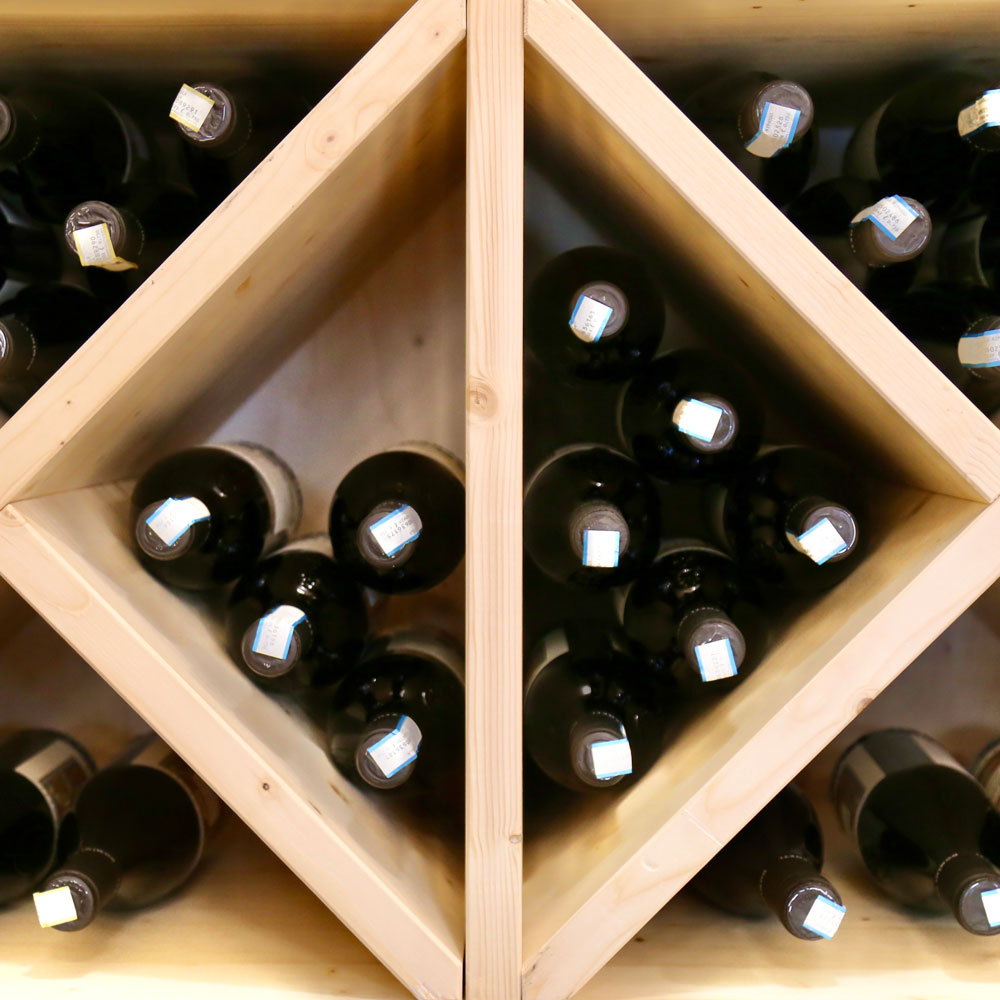
7 TIPS FOR STORING WINE – EVEN IF YOU DO NOT HAVE A CELLAR
Do you love wine and do you always have a few bottles available at home?
To enjoy it at its best, here are 7 tips to follow.
If you keep bottles of wine in the kitchen, on the fireplace or near the window, read immediately!
The wine needs a suitable place to arrive perfectly at the opening. Wine is a living product, it continues to evolve in the bottle; it matures and we must do our part to preserve it and be able to enjoy it at its peak when we pour a glass.
Following these 7 simple steps will give us a good chance of avoiding nasty surprises!
The simplest and most effective option is a cellar or a showcase constantly kept at the perfect temperature.
But what if we don’t have a cellar? Here are our suggestions:
Light
1. Do not expose wine to direct light.
The bottles must be kept in a dark place, protected from light, in particular from sunlight, because UV rays trigger chemical reactions that can ruin the wine.
Artificial light is less harmful, but it can make the label fade … it has its charm, but it is not the best of elegance!
Temperature
2. Do not subject the bottles to temperature variations.
Ideally, they should be kept constantly at 10 to 15 ° C. At higher temperatures, the wine will age faster than usual.
The kitchen is not the right place to store wine because it tends to be the warmest room in the house and with the greatest temperature changes. Temperatures below the ideal range are also not good and this includes the refrigerator. The lack of humidity can dry the cork, causing it to contract and allowing oxygen and bacterial particles to enter which could degrade the wine.
A good alternative is a sideboard far from heat sources, on the lower shelf.
Ventilation
3. Do not keep bottles closed in cartons or other airtight containers.
Although the bottles are best stored in a dark place, at a constant and relatively low temperature, this does not mean that they need to be hermetically sealed. A little ventilation is positive. It reduces the possibility of mold and reduces the odors that could contaminate the wine.
Odors
4. Do not expose to odors.
They do not permeate glass bottles, but we should not store our wines in the kitchen, for example, or in places where there may be strong smells such as detergents or chemicals.
Position
5. Do not keep the bottles vertical.
The liquid must be in direct contact with the cap, especially if it is made of natural cork. As mentioned above, if it dries out, the cork narrows and allows oxygen to enter causing the wine to oxidize.
Movement
6. Do not move bottles often.
Ideally, the bottles should remain still, away from excessive vibrations. If you have little space, keep them well organized and cataloged, so you don’t have to take out the bottles and put them back when you are looking for a particular wine.
Humidity
7. Do not store bottles in very humid places.
The wines are best preserved with a humidity level between 65% and 80% to keep the cork in good shape and maintain its elasticity, preventing infiltrations, mold and air inside the bottle. A dehumidifier can help. Conversely, if the air is too dry, you can opt for a humidifier or place a small container of water in your storage area.
Follow all our tips to protect your wine!
But there is only one way to find out if they worked: uncork the bottle. Cheers!


